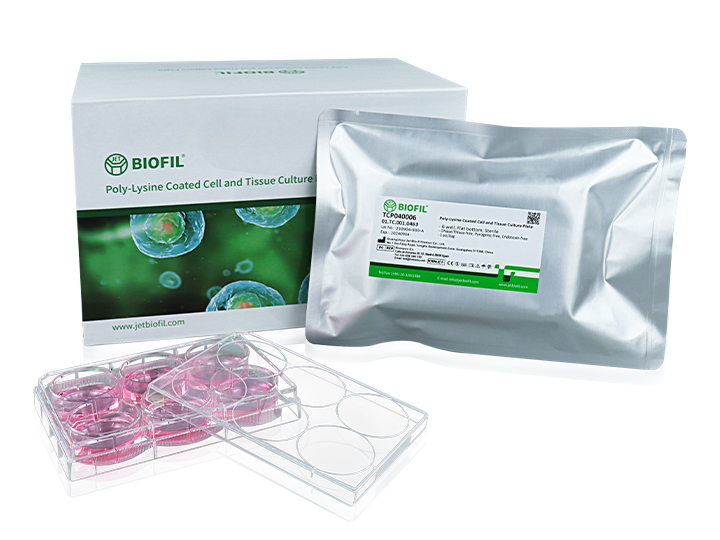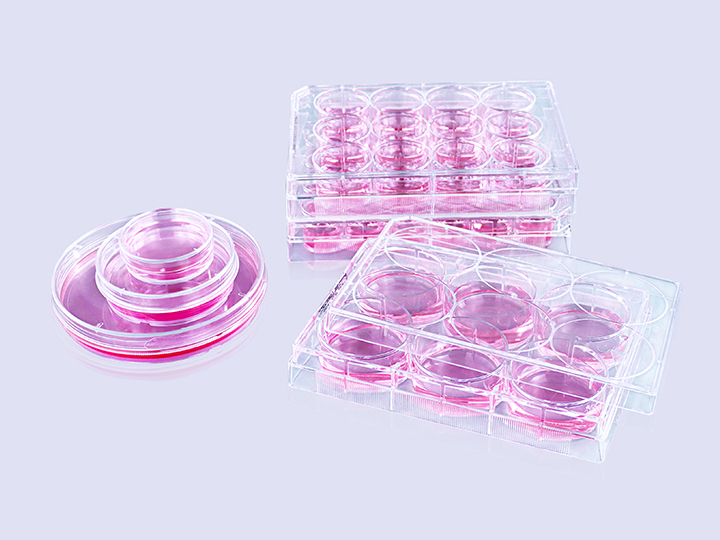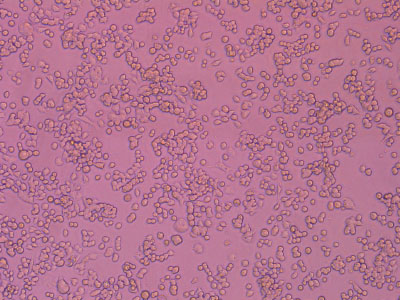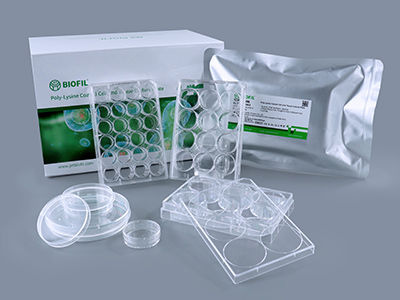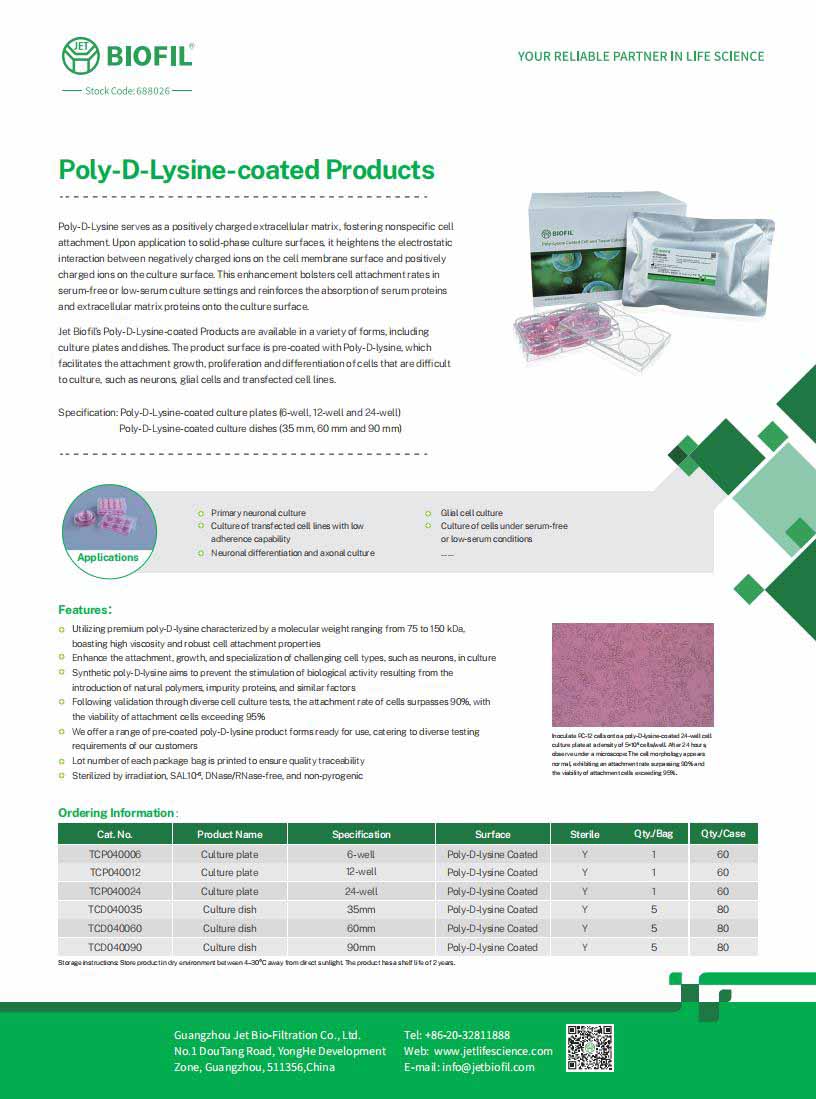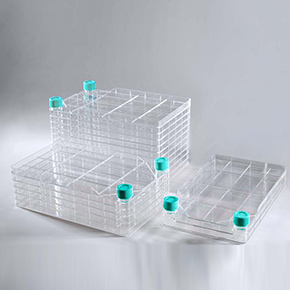* What does TC-treated in the product name mean?
TC-treated means that Tissue Cultured is used to treat the surface. By means of corona discharge or gas plasma, Jet Biofil can improve the hydrophilicity of polystyrene (PS) surface, improve the adhesion of proteins needed for cell adhesion, and thus help cells adhere to the wall.
* Which surface should I use to culture suspension cells?
The suspension cells do not have the need for cell adhesion, and generally the culture supplies for untreated surface can be used. TC-treated surface can also culture suspension cells, but according to the state and type of cells, some cells may appear adhesion phenomenon.
* If I want to coat extracellular matrix myself, what kind of surface should I use?
You can choose the culture vessel with untreated surface to coat the extracellular matrix by yourself. Of course, in this case, vessels with TC-treated surface can also be used
* How to use the cell culture bottle with a sealed cap? What are the differences between the use of cell culture bottles with filter membrane caps?
Cell culture bottles with sealed caps provide a closed cell culture environment. If it is needs to connect with the air in the incubator, it is necessary to slightly loosen the cap after the bottle is put into the incubator to allow air to enter. Similarly, when taking out the bottle, tighten the cap first and then take it out. The cap with the filter membrane itself has the function of breathable, and the filter membrane can prevent microbial contamination. Therefore, the cap of the culture bottle can be directly tightened and put into the incubator during use, but it needs to be noted that the filter membrane on the cap cannot be wet, wet filter membrane cannot ensure the passage of gas.
* What does T25, T175 mean that I often hear?
Taking T25 as an example, it refers to a cell culture bottle with a growth surface area of 25 cm2. According to the type of bottle cap and different culture surfaces, different article numbers correspond to different products.
* I bought the product with article number xxxxxx. What is its growth area? How much medium should I add to culture my cells?
We recommend using 0.2-0.3mL/cm2 of medium
* The cell culture bottle/dish I bought is not vacuum packed. The bag looks loose. Is there a quality problem?
The cell culture supplies of Jet Biofil are not vacuum packed, and are only manually aspirated for convenient transportation, so there will be differences. In addition, the temperature and air pressure in different regions will also affect the tightness of the packaging. If there is no air leakage in the package and the cap does not fall off from the product, it will not affect the sterility of the product and the quality of the product. Please feel relieved the use. If the package is damaged or the air leaks or the cover falls off from the product, please take a photo and submit a complaint through your dealer. At the same time, please pay attention to provide a photo of the outer box of the product. When you receive the goods, please carefully confirm whether the outer box is damaged or deformed.
* I can’t use up a package of culture supplies in one experiment. How should I preserve it?
We cannot guarantee the sterility of the product after opening. We suggest that you store it in a sterile environment, control the temperature and humidity of the environment, and avoid the storage under light/ultraviolet irradiation.
* I used the culture bottle/dish/plate of Jet Biofil, and the cells did not adhere to the wall. Is it a product quality problem?
There are many factors that lead to non-adherent cells, such as culture medium composition and pH value, culture environment, digestion operation, cell type, cell passage, etc. If you use the same product with the same article number to culture the same cell strain for a long time, and the cells adhere normally before, but do not adhere to the wall now, it is recommended that you timely record the batch number of the products used in both cases, and conduct repeated parallel experiments, that is, use cells from the same source to spread on the supplies of these two batches for culture (pay attention to using the culture medium from the same source). Culture in the same incubator to determine the main reason why cells do not adhere to the wall.
* The color of the culture bottle/dish/plate I bought this time is more yellow than that of last time. Is it a product quality problem?
It is normal that plastic consumables of different batches may turn yellow after irradiation sterilization.

